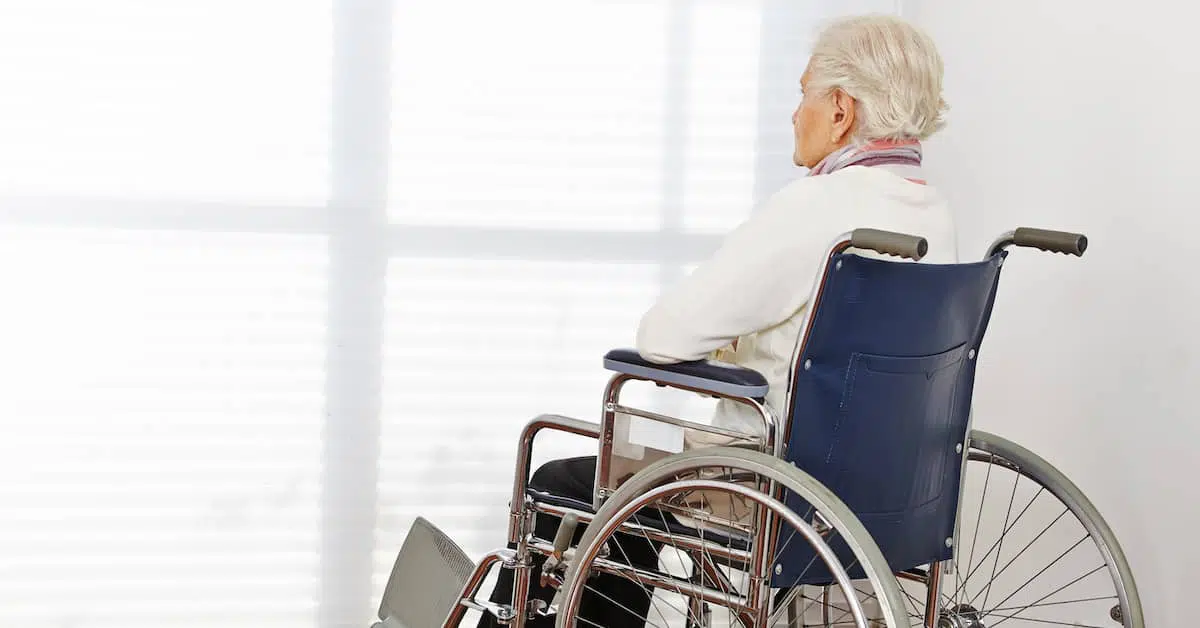
It can be a difficult decision to place an elderly family member in a nursing home. And yet, when your loved one requires ongoing, professional care that you are not able to provide, there may not be another sensible option. Not only does it help to ensure your loved one receives the medical care they need, but it may also provide them with greater social interaction.
That said, there is a darker side of nursing homes that we all should be aware of. Even before nursing homes were in the news because of their high rates of COVID-19, another problem has existed for some time: nursing home abuse.
While most of us can’t fathom that those committed to caring for the elderly would commit such horrendous acts, the data show that it is much more common than most think.
According to the National Association of Nursing Home Attorneys (NANHA), “A national survey of nursing home staff shows 36% of nursing home residents witnessed at least 1 incident of physical abuse of an elderly patient in the previous year; 10% committed at least 1 act of physical abuse towards an elderly patient; 40% admitted to psychologically abusing patients.”
Here, we are going to take a closer look at the four most common types of nursing home abuse, along with signs to look out for.
If you are concerned that a loved one is being abused in a nursing home, no matter the form of abuse, we strongly encourage you to get in touch with a Kentucky nursing home abuse attorney as soon as possible.
Most nursing home residents are there because they aren’t able to care for themselves, struggling with a physical or psychological impairment that makes them vulnerable and unable to defend themselves.
Tragically, according to the NANHA, 29% of nursing home abuse complaints reported were complaints of physical abuse. Physical abuse can take many forms, from blunt force to overmedication.
For family members, this means that any sign of physical injury – whether it be a bruise, broken bone, or cut – should be an immediate red flag. While accidents happen, physical abuse is too common not to look more deeply into the matter.
Also, as with all forms of abuse, treat any change in your loved one’s behavior as a possible sign of abuse. They could be living in fear of their caretakers or suffering from an intentionally altered medication regimen.
Mental and emotional abuse is likely the most common type of abuse in nursing homes – but it can also be the most difficult to detect.
Psychological abuse, like physical abuse, can take many different forms, including:
While it can be difficult to identify emotional abuse, there are some important signs to watch for, including withdrawal, depression, mood swings, and unusual soothing behaviors (such as mumbling or rocking back and forth).
Sexual abuse is less common than other types of physical and psychological abuse, but it is still far more prevalent than you may realize. According to The National Consumer Voice for Quality Long-Term Care, there were investigations into 819 complaints regarding sexual abuse in 2016.
Most commonly, sexual abuse occurs between residents, particularly when dementia is involved. Types of sexual abuse include unwanted intimate touching, rape, forced nudity, forced observation of masturbation or pornography, and the distribution of sexually explicit material showing residents that are not fully clothed.
There may be physical signs of sexual abuse, including bloodied underclothing, unexplained STDs, and bruising around the genital area or breasts. However, it is also important to look out for psychological symptoms such as panic attacks, withdrawal, sudden changes in behavior, and suicide attempts.
Finally, financial exploitation is also a serious, common form of abuse, with 1 in 9 seniors over the age of sixty reporting instances of it. While financial abuse is less violent and traumatic, we can’t overlook the serious impact it can have on a senior’s overall well-being. They are often living on a fixed income, based on their retirement savings and social security, which they rely upon for their medical care and lifestyle. When this money is taken without their consent, it could have a disastrous effect on their living situation.
In many cases, elderly individuals – especially those with cognitive difficulties, such as dementia – are not able to monitor or manage their finances and assets by themselves, making them susceptible to exploitation while making it difficult to detect.
Financial abuse includes cashing checks without permission, forging signatures, stealing, and more. In many cases, this type of exploitation is committed by a family or friend, though nursing home staff may also be able to take advantage of a senior in this way.
The best way to identify financial abuse is to keep an eye on your loved one’s finances to quickly detect anything unusual. This can include large withdrawals, changes in a will or financial documents, unpaid bills, and the unexplained transfer of assets.
The most important stepfamily members can take to protect elderly loved ones in nursing homes is to believe them when they complain. This sounds obvious, but it can seem unfathomable that someone would take advantage of a senior in these ways. Combined with Alzheimer’s or another form of dementia, and it can be all too easy to shrug off complaints as delusional.
However, as we have seen here, these forms of nursing abuse are far too common not to take each complaint seriously while keeping a vigilant eye out for signs that abuse is occurring.
If you are concerned about an elderly loved one and suspect that abuse is taking place, the first step is to ensure they are safe. After that, we encourage you to get in touch with the nursing home abuse attorneys at The Karl Truman Law Office as soon as possible. Please call our Louisville, Kentucky office at (502) 222-2222 for a free case evaluation.